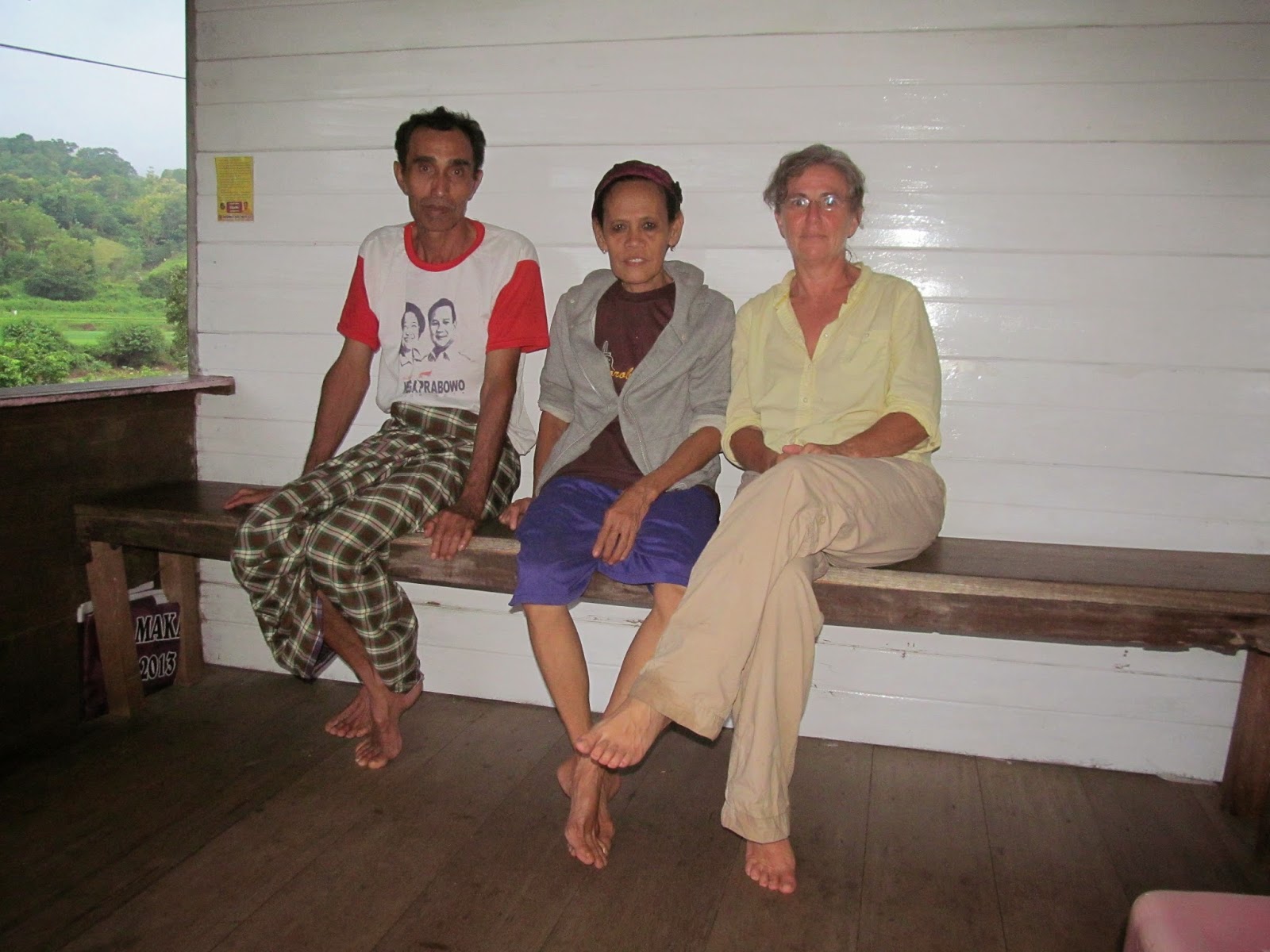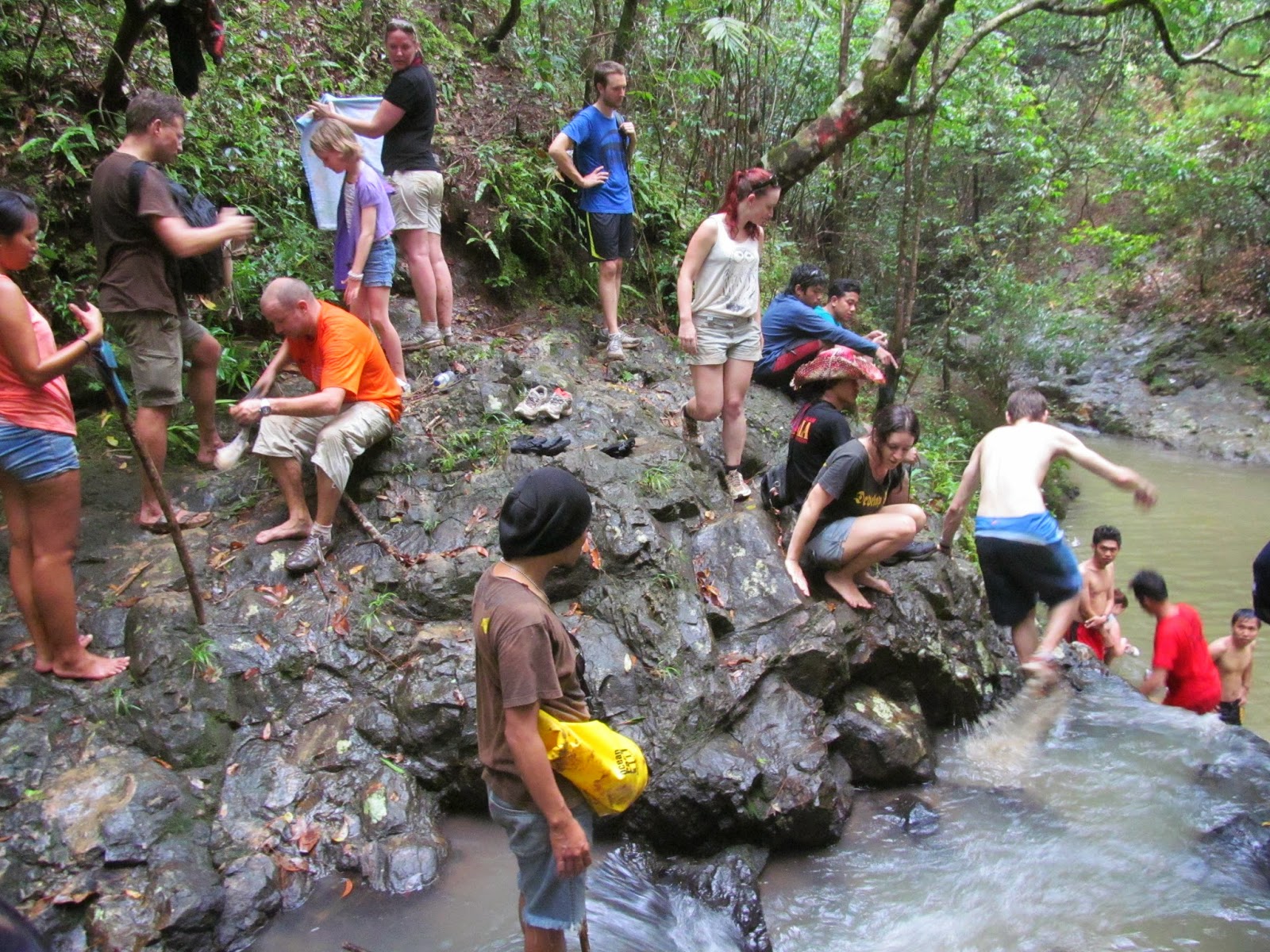After a year & a half I think I understand about a tenth of what goes on in Indonesia or to be specific, South Sulawesi - because the characters, customs & hidden meanings can be quite different between the islands - and it seems to me that there are countless contradictions in this country which are simply unintelligible to me raised in a very different culture. It’s tough to even recognize or learn about some of these anomalies.
The first of which, and most obvious, is that everyone is very friendly. In fact, immediately friends-for-life. But not really. While networking goes on everywhere and all the time, it’s rarely followed up. I’ve found out that “You must come & meet my family” usually means “Goodbye, I’ll never see you again”, but never in a bad way. It’s just that those rapid connections are superficial & not pursued. It actually takes a really long time to get to know someone to the extent that you would count them among your friends - people who you would call up, go out for coffee and have a good long chat. Hmmm, maybe this was the society for which Google Circles was invented.
Indonesia has an intricately structured, highly bureaucratic government - all government workers, including schoolteachers, wear uniforms - and this top-down administrative nature tends to foster an almost extreme reluctance (or inability) of anyone other than the head guy to make decisions. This means that underlings (everyone other than the top guy) can sit around waiting for direction for a really long time before the order / permission / signed letter / stamp gives them the go-ahead to do pretty much anything. On the other hand, this is a busy, commercial society with many independent operators selling everything you can lay hands on in the country, usually roadside in a slapped together stall or out of the back of a vehicle. To establish a business with four walls in a location with an address you need to submit application forms correctly completed, signed and stamped with fees paid in the full amount, but the ‘temporary’ enterprises - which are probably more numerous than the officially registered ones & can support a family until the kids are out on their own in their own fish stalls or durian trucks - are the backbone of everyday commerce (i.e. food, household supplies, clothing) in Indonesia.
Inequality between the poorest classes of people and the richest stratum is immense - difficult to find the words to describe just how little most Indonesians earn each year & compare it to how the wealthy people live. I guess I could just say that one rich Indonesian could easily support a village of 1000 residents - build them new houses, pay all the school fees, buy all their clothing, food, etc - without having to cut back on that new fleet of cars. It’s ridiculously inexpensive to live in the country if you eat local food from the market, don’t own a car and don’t mind living without hot water, a bathtub, or several other common amenities. That’s why someone can (barely) survive on a salary of about $65 per month. The ‘Wage Gap’ is a joke here; ‘Wage Marianas Trench’ would be closer to the mark.
The missing element in these strata is the middle class - of course, there is one, but it’s not huge and it doesn’t seem to be growing. Like in North America, rich people (and the moderately well-off) are getting richer while poor people are doing worse every single year. Prices for food, gas and other basic living needs are rising while wages at the bottom level are entirely stagnant. Middle class business owners, doctors & other professionals can quickly move up the ladder because the cost of labour is depressed (ergo, cost of new housing, luxury goods is kept fairly stable). There are millions of young Indonesians with post-secondary degrees that are underemployed or can’t get work at all - their entry into the middle class is blocked. In another country these educated young people might try to emigrate, but unlike those from the Philippines, Malaysia, China, India, etc. I haven’t met any Indonesians who tell me they have a relative living out of the country. Not one. I’ve met several who have been to Australia, Japan, Holland, the US and Canada, either to study or visit, but have yet to meet one who says they know someone or that they themselves want to emigrate. That’s unusual.
You can conclude from this that family is probably of paramount importance in an Indonesian’s life. And it’s true that if one member of the family gets ahead - starts a business that becomes very successful, or breaks into a position in government - the rest of the family will directly benefit from either wage-sharing or getting jobs themselves through the first one in the door. With large families and the possibility of living a very good life on a moderate income here, those opportunities just might be worth the wait.
So, let’s talk morality. Indonesia has five official religions - Islam, Christian, Catholic (don’t ask me - ask the Indo government), Hinduism and Buddhism. To apply for a long-term visa you must choose one of the options on the official form. There is no ‘other’ choice. Either in contradiction to this, or because of it, Indonesians are very tolerant of anyone not of their own faith. (I’ve heard this is not as true in western Sumatra, where they are cultivating a nasty brand of radical Islam.) We get more official days off per year including all the important days for the five religions as well as Chinese New Year, thanks to the influx in the past century or two of many Chinese immigrants. The different character of the islands is often a result of the predominant religion on those islands - if you need a decorative wooden penis the markets in Bali, with its largely Hindu population, are the places to go. A regular boys’ night out with beer flowing is best had on Flores (mostly Catholic). Most people in South Sulawesi are Muslim but there are large areas, particularly in the northeast, with Christians. Toraja, one of these Christian areas, is very well known for its intricate burial rites with herds (and herds and herds) of animal sacrifices during the funeral services. Modern religions (i.e. those created in the last 2000 years) seemed to have just slid right in and made themselves at home among more ancient customs on these islands.
Where you have religious strictures, you have people breaking these left, right & centre, right? Right. Most villagers would not touch beer or wine, let alone hard liquor, but ballo - oh yeah, pour me one. This is the local hooch, made from palm fruit, with a higher alcohol content than beer. I’ve heard two reasons why this is perfectly acceptable to practicing Muslims - one is that it’s natural - made locally, not officially bottled, just poured into a pre-used water bottle for convenience of transport - from all-natural ingredients. (I can hear hackles rising on home-brew wine & beer experts from here.) The other reason is that one or two, that’s okay, just as long as you take it in moderation, there’s no problem. Let’s leave it at that.
But then if you’re really craving a cold beer there’s always a guy, in even the smallest villages, who keeps a few bottles under the counter for discreet purchase. You just need to know who to ask. (Everything that happens here always comes back to networking & I really wonder how things worked before cheap cellphones inundated the country.)
So, one or two sexual indiscretions (a year, a month or a week) - no problem with that either apparently. Prostitution is, well, maybe not rampant, but you hear about it a lot here. And I mean a lot. The city street facing Makassar’s port is wall to wall karaoke bars. (Important translation point: ‘karaoke bar’ = ‘brothel’, while ‘family karaoke bar’ may = ‘karaoke bar’, but not always). Well, you can certainly expect that in any port city or any city anywhere in the world. A lot sadder to me was to visit a beach resort town in another, quite rural, area and see a long stretch of windowless, concrete block buildings on a dirt road which cater to men who seem quite willing to drive 3 or 4 hours for the sake of discreet indiscretions.
However, cheating on your wife with someone else’s wife may result in death, for both of you. Not legally, of course, but I’ve been told no one would investigate. (But remember, my informants may just be having a joke at my expense, I’m just passing on what I hear.) And unless your sweetheart, whom you have just asked to climb down a ladder and run away with you, first barely misses your head with an intentionally-packed suitcase full of clothes to accompany her, you’re in deep trouble. Life-ending kind of trouble. So grab her backpack at the very least before she hops on the back of your motorcycle. Otherwise it’s considered, well let’s call it, ‘grand theft wife’ because marriage is expensive for men here. They must collect up to 40 million rupiah (about $4,000) to donate to wedding expenses before marrying their fiancee. Unless they want to settle for a nice girl from Java - for some reason their weddings are much cheaper, only about 1 million Rp. This leads to several sad single Sulawesi girls and probably a lot of sadder love songs.
So, I’m still learning a lot here & the most fascinating lessons from this society are the contradictions that seem to saturate every part of it.

















